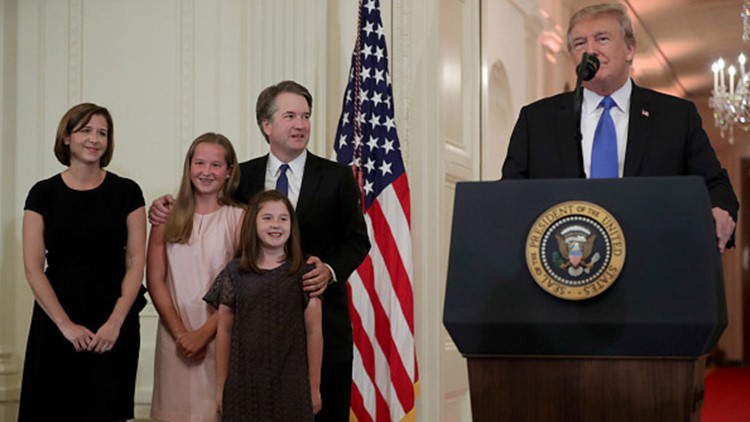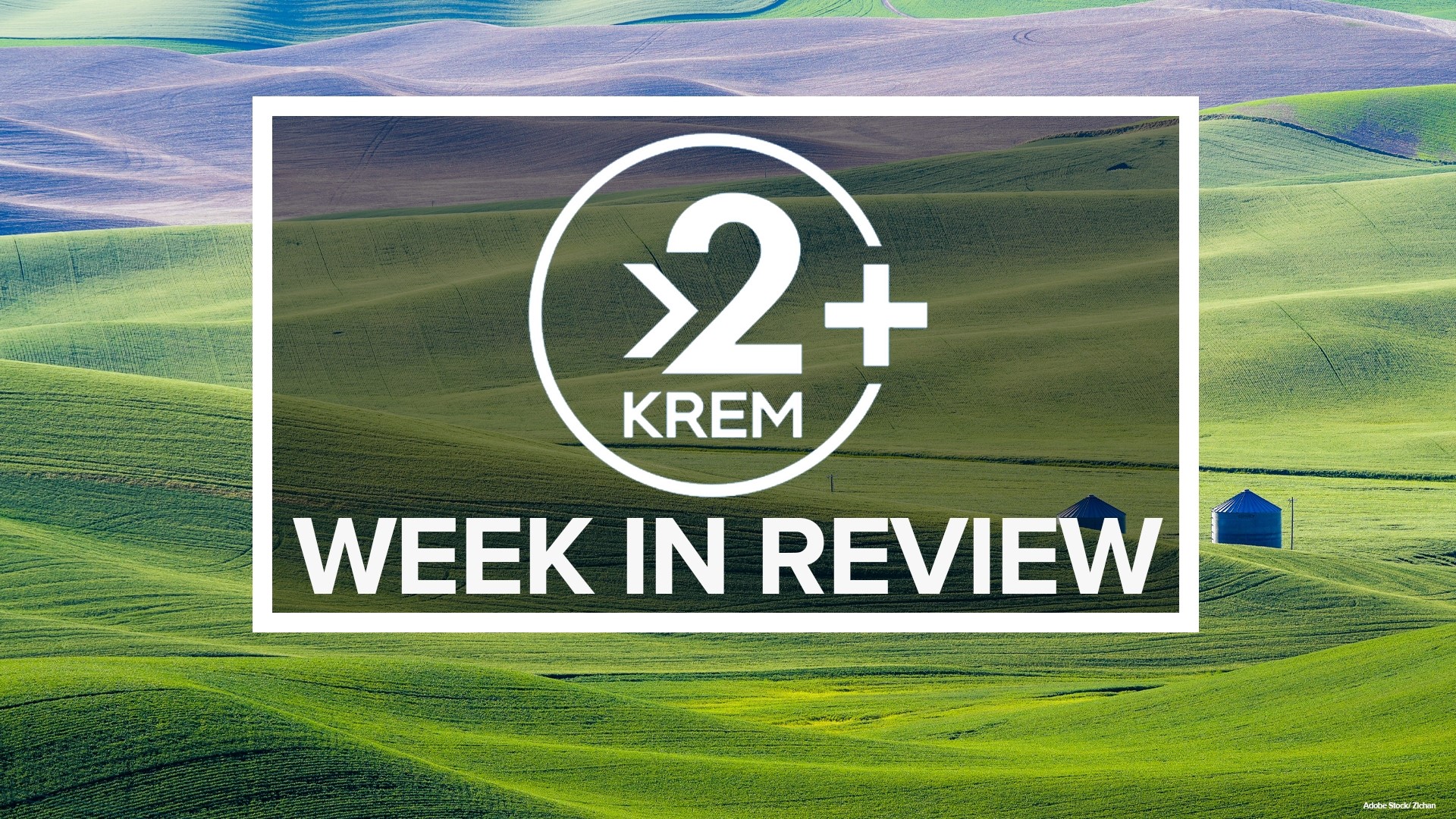President Donald Trump is selecting Brett Kavanaugh to replace Justice Anthony Kennedy on the Supreme Court, a pivotal choice that could move the court in a more conservative direction for decades.
At a White House ceremony announcing the pick, Trump described Kavanaugh as a man of "impeccable credentials" and a "true thought leader among his peers."
Long seen as the front-runner for the position because of his academic pedigree, sterling reputation and lengthy career in government service, Kavanaugh had to fight off late support for several other candidates that had Trump wavering up to the final hours Monday.
A former lawyer and top aide to President George W. Bush, Kavanaugh has served on the powerful U.S. Court of Appeals for the District of Columbia Circuit for the past 12 years. It's the same court that produced three current high court justices. He also worked for independent counsel Kenneth Starr during the Whitewater investigation of President Bill Clinton.
Kavanaugh ruled in one case involving abortion last year and is considered a likely opponent of Roe v. Wade, the 1973 ruling that legalized abortion nationwide. He has a solidly conservative record as a judge in cases involving government regulation and the separation of powers, issues that are important to the groups supporting his candidacy.
The Senate must confirm Trump's nominee, who will be backed campaign-style by the White House and conservative legal organizations. White House aides said they have prepared "rollout packages" for the four finalists.
The Judicial Crisis Network is planning a $1.4 million ad buy in Alabama, Indiana, North Dakota and West Virginia — states with moderate Democratic senators who could be pressured to vote for Trump's nominee.
The Republican caucus has a 51-49 advantage in the Senate, but one key member, Sen. John McCain of Arizona, is ill and may not be able to participate in the confirmation process.
Trump had said he hoped to make his decision by the time he returned Sunday from a weekend in New Jersey, but he told reporters en route to the White House that he needed more time.
“I’m getting very close to making a final decision," Trump said. "And I believe this person will do a great job."
As aides prepared for a prime time announcement Monday, Trump tweeted: "I have long heard that the most important decision a U.S. President can make is the selection of a Supreme Court Justice - Will be announced tonight at 9:00 P.M."
This is Trump's second nominee to the court and gives him a chance to shape the court's direction for decades to come.
Kavanaugh's 12 years as an appellate judge, combined with his Yale pedigree, Supreme Court clerkship under Kennedy and top posts in the Bush administration, give him a resume his predecessors can't match. His mother, Martha, became a Maryland state judge a quarter-century ago.
"I have interviewed many candidates for the federal bench, including (Chief Justice John) Roberts and (Justice Samuel) Alito," said Bush's former attorney general, Alberto Gonzales, said. "There is no question in my mind regarding Brett for the Supreme Court. He has a track record that demonstrates his talents and his judicial philosophy."
More than anyone else in conservative legal circles today, Kavanaugh, 53, has been viewed as a Supreme Court justice-in-waiting. While waiting, he's penned he has written nearly 300 opinions and sent 41 of his law clerks to similar posts at the high court – far more than any of the other leading candidates for the nomination.
Throughout the search for Trump's second Supreme Court nominee, Kavanaugh was a favorite of the conservative legal cognoscenti. They sought someone with a long track record that included most of the controversial issues likely to come before the high court.
Since the 2016 campaign, Trump has made his process for picking Supreme Court justices fairly transparent. He released a list of judges he would consider for the court in 2016 and reiterated his use of that list after Kennedy's retirement.
On Monday before Trump announced his nominee, the White House sent out the list again and touted Trump's selection process.
The list and reports coming from the interviews, however, have given Trump opponents a chance to examine each of the judges on the list and develop potential attacks on the records of each.
Democrats who plan to oppose Trump's nominee are focusing on two Republican moderates, Susan Collins of Maine and Lisa Murkowski of Alaska, hoping to turn them against Trump's selection.
Kennedy's legacy
Kennedy’s retirement left a hole for Trump to fill smack in the middle of the deeply divided court, where all nine justices tend to vote the way the presidents who nominated them expected. Kennedy, a 1988 appointee of President Ronald Reagan, was the most unpredictable.
On the past quarter century’s most consequential and controversial issues, from racial preferences to religious freedom to reproductive rights, Kennedy often bridged the gap between the court’s liberals and conservatives. That role became all the more important in the last decade, following the retirement of Sandra Day O’Connor in 2006.
Thus it was that the 81-year-old Californian — until recently the only Westerner on the nine-member court — cast the deciding votes in recent years on gay marriage and gun ownership, prayer and privacy, campaign finance and capital punishment.



